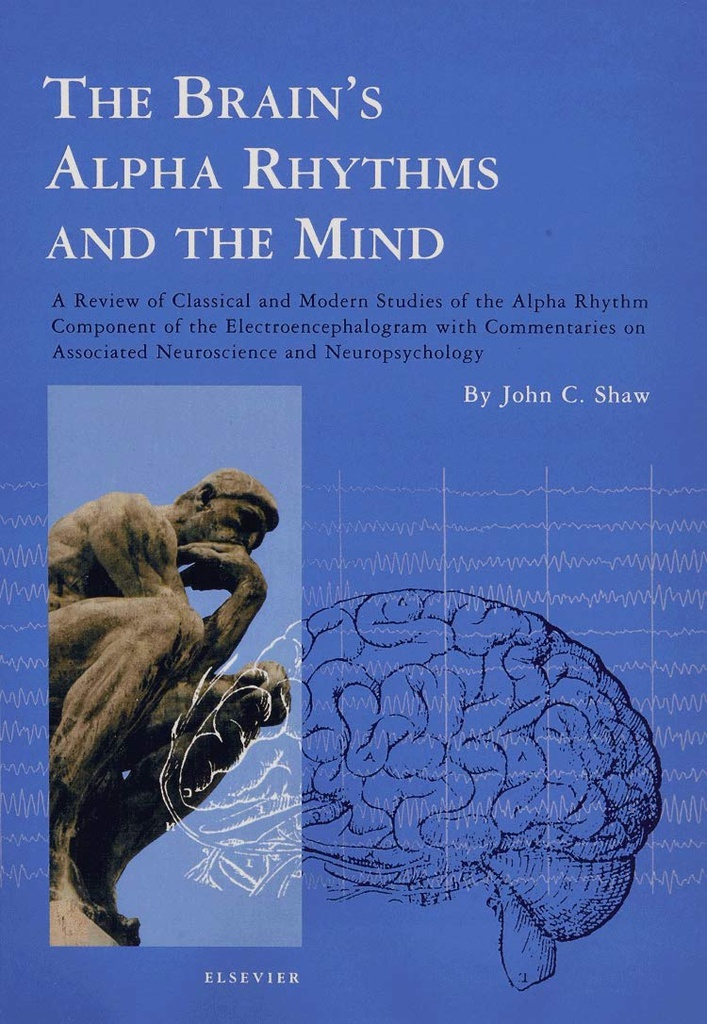The Brain's Alpha Rhythms and the Mind: A review of classical and modern studies of the alpha rhythm component of the electroencephalogram with commentaries on associated neuroscience and neuropsychology 1ed
"This book highlights that current knowledge about alpha activity is as yet incomplete and thus will remain a subject of considerable scientific research.
Not in Stock. Ships in: 4-6 weeks
Details
The Brain's Alpha Rhythms and the Mind: A review of classical and modern studies of the alpha rhythm component of the electroencephalogram with commentaries on associated neuroscience and neuropsychology 1ed
This book highlights that current knowledge about alpha activity is as yet incomplete and thus will remain a subject of considerable scientific research. This book is an appropriate reference tool, not only for experienced researchers, but also for young neuroscientists and students. It should also help to stimulate the interest of scientists to design new experiments and devise new concepts." From review by Alexander A. Fingelkurts and Andrew A. Fingelkurts in Clinical Neurophysiology, 2004, 115(8): 1944-1945.
This book is the first to review the whole field of the Alpha rhythm component of the electroencephalogram (EEG). It reviews the classical studies from the 1930s through the 1980s when EEG research became dominated by event-related potential studies. Renewed interest in the alpha rhythm developed in the 1990s when neuronal oscillations became a major focus of interest in the neurophysiology of brain function. Many of the later studies of alpha activity that resulted from this development are fully documented in the book.
Three main themes are presented throughout the book. First, the recognition of the ubiquitous nature of the alpha rhythm such that there are multiple sites of alpha rhythm generation in the brain, many only being detected by using appropriate signal analysis techniques. This has resulted in the recognition of 'alpha activities', in place of the classical unitary alpha rhythm. Second, the attempts to use a hemisphere function model to relate alpha activity response to mental activity and inter-individual variation are critically reviewed and shown to be equivocal. In particular the significance of independent alpha components within the alpha frequency band is described. Third, both classical and new ideas about the generation of the EEG, particularly alpha activity, are reviewed and some new concepts about its functional significance are presented.
There is currently extensive interest in the brain, particularly in relation to the concept of consciousness. Therefore, many chapters include introductory material relating to neuroscience, neuropsychology and psychophysiology. There is also a critique of the use of alpha activity in biofeedback, hypnosis and meditation. Because EEG research is very dependent on advances in the technology of EEG measurement, an introduction to this technology is included as an appendix. A second appendix describes the historical origin of the concept of desynchronisation.
| Book | |
|---|---|
| Author | Shaw, J. C. |
| Pages | 360 |
| Year | 2003 |
| ISBN | 9780444513977 |
| Publisher | Elsevier |
| Language | English |
| Uncategorized | |
| Edition | 1/e |
| Weight | 1.02 kg |
| Dimensions | 19.72 x 26.7 x 2.49 cm |
| Binding | Hardcover |


